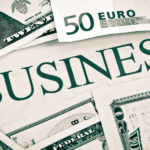DHL and IAG Cargo, a division of International Airlines Group, have strengthened their commitment to sustainability with a new agreement involving the use of 60 million liters of sustainable aviation fuel. This expanded partnership highlights the increasing emphasis on reducing carbon emissions within the logistics and aviation sectors. Businesses are under pressure to adopt eco-friendly practices, and this collaboration represents a significant step towards addressing environmental concerns. Industry leaders are making notable strides in supporting global sustainability initiatives by integrating advanced solutions such as sustainable aviation fuels.
The collaboration between DHL and IAG Cargo follows earlier agreements that have set the stage for ambitious sustainability goals. In previous years, both companies prioritized reducing their carbon footprints, aligning with global efforts to mitigate climate change. DHL’s Sustainability Roadmap, launched in 2021, underscores its commitment to decarbonization and innovative environmental strategies. IAG has also invested heavily in sustainable aviation fuel as part of its strategy to reach net-zero emissions by 2050. Such initiatives are crucial as they demonstrate the growing trend of integrating sustainability into business models.
What Does the New Agreement Entail?
The newly expanded agreement makes this collaboration the largest in terms of sustainable aviation fuel (SAF) usage between an airline and a customer. Over the next year and a half, this move is expected to cut greenhouse gas emissions by around 165,000 metric tons of CO2e. The SAF used in this partnership is derived from waste materials like used cooking oil and food waste, and boasts about 80% lower lifecycle emissions compared to traditional jet fuel.
How Are Companies Meeting Their Sustainability Targets?
DHL has set ambitious targets, aiming for at least 30% SAF blending across its air transport operations by 2030. On the other hand, IAG is working towards achieving 10% SAF usage by the same year. To meet these goals, IAG has secured a third of the SAF needed and has invested approximately $1 billion in SAF development. Both companies are positioning themselves as leaders in sustainable logistics and aviation, furthering their dedication to reducing environmental impacts.
Travis Cobb, EVP Global Network Operations & Aviation at DHL Express, emphasized the significance of collaboration, saying,
“We strongly believe that collaboration is the foundation of a more sustainable future. Both DHL and IAG Cargo share a strong commitment to carbon footprint reduction. We are pleased that we can now mark another milestone on our journey towards more sustainable air freight.”
David Shepherd, CEO of IAG Cargo, echoed this sentiment, highlighting the role of cooperation in promoting sustainability, stating,
“This partnership with DHL is a testament to our shared commitment to decarbonising aviation. By utilising 60 million litres of Sustainable Aviation Fuel, we are not just reducing our carbon footprint by an estimated 165,000 metric tons of CO2e, we are demonstrating the power of collaboration in driving meaningful change. This reinforces IAG Cargo’s commitment to sustainable air freight solutions and brings us closer to achieving our Group goal of net-zero emissions by 2050.”
Advancements in sustainable aviation fuel usage illustrate the logistics and aviation industries’ commitment to tackling climate change. As companies like DHL and IAG Cargo make strides in their sustainability efforts, the broader industry takes notice, driving further innovation and adoption of green technologies. The collaboration between DHL and IAG Cargo sets a precedent, encouraging other companies to adopt similar practices to promote a sustainable future.










